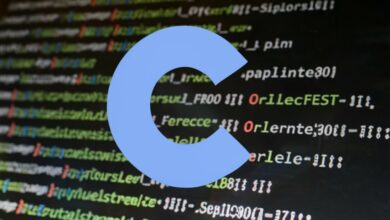
C program to print odd numbers from 1 to n without using if-statement
Printing odd numbers appears like a straightforward task, often tackled with an if statement. However, in the realm of coding challenges and exploring alternative approaches, avoiding conditional statements adds a twist. This guide explores printing odd numbers from 1 to n in C without using an if statement.
1. Understanding the Challenge
The key to achieving this lies in exploiting the inherent properties of odd numbers and the capabilities of C operators. Odd numbers differ from even numbers by always leaving a remainder of 1 when divided by 2. Additionally, C provides bitwise operations that can manipulate binary representations of numbers efficiently.
2. Approaching the Solution
Several approaches can tackle this challenge, each offering different advantages and intricacies. We’ll explore two popular methods:
2.1. Utilizing the Right Shift Operator:
This method leverages the right shift operator (>>) to “discard” the least significant bit of a number. Since the least significant bit in binary representation determines oddness (1 for odd, 0 for even), shifting right essentially removes that bit information.
Here’s the code snippet:
C
#include <stdio.h>
int main() {
int n, i;
// Get the upper limit
printf("Enter the upper limit: ");
scanf("%d", &n);
// Loop from 1 to n
for (i = 1; i <= n; i++) {
// Check if the rightmost bit is set (odd)
if (i & 1) {
printf("%d\n", i);
}
}
return 0;
}
Explanation:
i & 1performs a bitwise AND operation betweeniand 1 (binary 0001). If the least significant bit ofiis 1, the result will be 1, indicating an odd number.- The
ifstatement only printsiif it’s odd (rightmost bit set).
2.2. Looping with Increment by 2:
This method utilizes the fact that consecutive odd numbers differ by 2. Therefore, looping from 1 to n with an increment of 2 automatically covers all odd numbers within the range.
Here’s the code snippet:
C
#include <stdio.h>
int main() {
int n, i;
// Get the upper limit
printf("Enter the upper limit: ");
scanf("%d", &n);
// Loop from 1 to n with increment 2
for (i = 1; i <= n; i += 2) {
printf("%d\n", i);
}
return 0;
}
Explanation:
- The loop iterates from 1 to n, incrementing by 2 in each step. This ensures only odd numbers are visited (1, 3, 5, …, n).
- Each visited
ivalue is directly printed inside the loop.
3. Choosing the Right Approach
Both methods achieve the desired outcome without using an if statement. The choice between them depends on your preference and specific context.
- Right Shift Operator: This method is more concise and elegant, requiring only a single bitwise operation within the loop. However, it might be less intuitive for beginners unfamiliar with bitwise operations.
- Looping with Increment by 2: This method is simpler to understand, utilizing a straightforward loop structure. However, it might be slightly less efficient compared to the bitwise approach due to unnecessary iterations for even numbers.
4. Conclusion
Printing odd numbers without an if statement demonstrates the flexibility and expressiveness of C programming. By understanding the properties of numbers and the power of operators, you can explore alternative solutions and enhance your coding skills.
Feel free to experiment with these methods, modify them to your needs, and discover further creative approaches to solve similar challenges!




